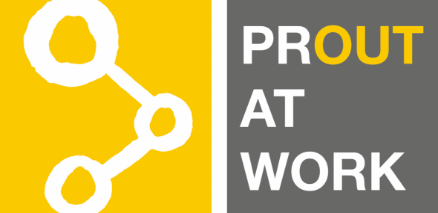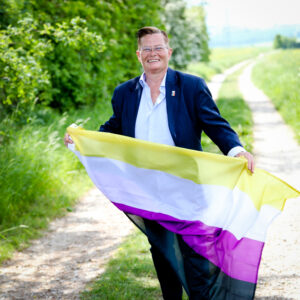
MYSTORY with …
Jay
53 Years, Einbeck
“My journey began with an end and a beginning, and this end made my truly new beginning as a non-binary person possible in the end. …”
Published: November 2022
A new beginning.
On March 6, 2020, the most unusual journey of my life so far began. It began with an end and a beginning, and this end made my truly new beginning as a non-binary person possible in the end. On that day, the love of my life ended with the death of my relationship person. I was infinitely grateful for the 23 years that I was allowed to spend with her, despite all prophecies of doom.
A love that seemed so unusual even to us lovers in the beginning that we asked ourselves at the time, “Can our relationship really work and go well?” We decided to take the risk. My great love was and remained until her death, married to her husband and had three children, who at the beginning of our relationship, were between 6 and 13 years old. She was 12 years older than me. We lived an unusual, publicly known, patchwork rainbow family relationship for 23 years. I miss her to this day.
Today, I am actually grateful for that void her absence has left in my life. I am also thankful that the Corona Lockdown that started shortly after her funeral turned me back on myself. With the absence of external distractions, I was able to use this time for inner gathering and my refocusing. On many lonely evenings on my balcony, I began to search for answers to life questions and to define new goals.
“Where should my path lead now?”
“How do I want to live?”
“What are my goals?”
I found more questions than answers at that time. I discovered within myself dungeons and locked doors, dark caves and buried shafts. What I lacked was light. The deeper I went, the less hope I had of finding answers on my own that could shed light on the darkness. I admitted to myself that I couldn’t answer all the questions on my own, and I enlisted professional outside travel assistance in the form of coaching.
It quickly became apparent that I had been asking myself the right questions at the wrong time. By the end of 2020, I was still far too caught up in the social norms and conventions of heteronormativity around me and in my own inner beliefs. These thoughts and conventions were blocking my path to answers.
I wanted, no I had to try something new, like when I was on vacation in Canada. Every day at that time I had opted for the classic English breakfast. The Canadian breakfast of French toast (Poor Knights), crispy bacon and maple syrup seemed too absurd a combination. Bacon and maple syrup?! A white bread soaked with egg, instead of egg on the white bread and bacon extra on top. I could not imagine this combination of sweet and salty as delicious. One morning, this meal looked so delicious at the neighboring table that I dared to order and try it too. It was a revelation and a symbiosis of opposites that, combined like this, gave me a completely new, incredible taste experience. For this experience, it was necessary to ignore old ideas and concepts (like taste experiences).
My experiential process right before my non-binary coming out was very similar, but much more intimate. This process, too, was about reconciling opposites and exploring new territory. The phrases that went through my mind before making these decisions were, on the one hand, “Do I really dare?”. What happens if it’s an absurd experience?” and on the other, “I’m so excited! I can’t wait!” I, (then still Judith – gender: female; gender identity: “butch”; sexual orientation: lesbian), boldly decided to try something completely new and unfamiliar, leaving old paths behind. With a curious beginner’s mind, I embarked on a new experience.
I was gifted with answers to questions that have accompanied me my entire adult life. „Wer bin ich?“ „Wer oder was ist meine Identität?“ „Wieso fühle ich mich stets „zwischen den Stühlen“ sitzend/stehend?“ These questions have accompanied me for many years of my life.
In this experiential moment, I let go of my preconceived thoughts about gender and gender identities and freed myself from convention and propriety.
I let go of Judith, or in other words, Judith said goodbye, and in the same moment I was transformed into Jay.
As Jay (gender: diverse; gender identity: non-binary; sexual orientation: women loving), I felt whole and complete for the first time in my life. I realized that I now had a new name and a new gender. After 50 years, the search for my true identity ended in a truly new beginning; a new birth certificate even made this official very soon.
It was out of the question for me to make this inner transformation visible to the outside world as well. Sometimes bureaucratic mills grind fast, too. In February, I received a certificate from my family doctor, submitted an informal application for gender and name change with it to the registry office and promptly received an official appointment for the oral application.
It was on February 18, 2021, when I was handed my new birth certificate with new name and gender by the registrar of my town. I thus wrote Einbeck town history, as the first person with a diverse gender entry in the town’s birth register. I am very grateful for all the experiences, for all the people who contributed to this moment. I would like to thank all the people for their appreciation, solidarity and joy shown to me during this coming out.
DEAR Jay, THANK YOU VERY MUCH FOR YOURSTORY!
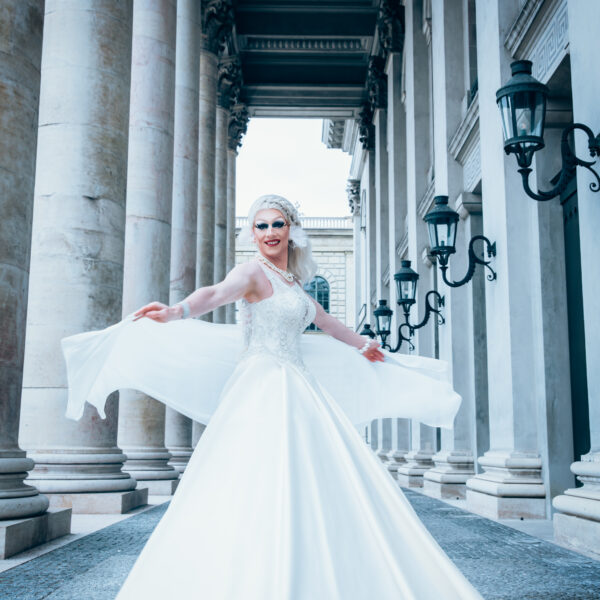
MYSTORY with …
VICKY
33 Years, Munich
“Over the years, Drag became a bigger and bigger part of myself, its not only an art form to me, but also a way for playful confrontation with my personality...”
Published: October 2022
A VOYAGE IN DRAG.
Vicky Voyage is always worth a trip.
With my drag persona Vicky Voyage, I take you on a varied joyride into the world of drag art. With charisma and wit I present as an international performer, moderator and entertainer I use thoughtful clever concepts with both extravagant outfits and strong make-up. I serve a wide variety of eye candy at my stops: among others, I was on the road as a fulminant fire fairy (CSD Munich 2018), as a dazzling butterfly (CSD Munich and Vienna 2019), legendary snow queen (Drag Voyage calendar project 2022) and also as a loving local heroine in Dirndl (at various events). At galas and parties, in shows and in the theater: with pole dancing, a touch of acrobatics or just with my “plump” presence, I invite the audience to marvel.
Over the years Drag became a bigger and bigger part of me, which for me is not only an art form, but also allows the playful confrontation with my personality.
After the pandemic – following many different events – nearly brought the world to a complete standstill, I came up with the idea for Germany’s first professional drag calendar during the lockdown period. Performances were not possible, projects fell away – a new one was needed. Since the drag scene has also developed in Germany, I wanted to give a little insight into the facets of different characters and, together with other artists, take you on a journey through the wonderful world of drag. Discover fabulous Kings & Queens from Munich and Augsburg, and how they play with more diverse and colorful art, always guided by the question: What does drag mean to the artists, what does it mean to you?
With the picture you see, the motif for December 2022, I wanted to express something very specific. My theme was:
#legendary: I write my own story and walk my own path – preferably in high heels.
Based on Cinderella, the image is meant to illustrate that I don’t have to wait for my prince until I can have a fulfilled life, but that as a strong personality I can choose and shape my own path and be responsible for my own happiness in the process.
For the sale of the calendar, I have not only set up my own web store, but have also worked with various retailers who have distributed the calendar throughout Germany and also in Austria and Switzerland. Although the product “calendar” in 2022 is no longer found in every household and the drag motifs do not appeal to all people equally, the calendar with our personal and expressive images was well received across society. Almost all 1,000 copies were sold or dedicated to social projects. It was a great new experience and the whole team can be proud of the result. Here again a big thank you to everyone who worked so motivated and contributed to the successful final result.
Since I hope that the Corona situation will improve and more opportunities will be allowed again, I will devote myself in 2022 and also the next years as an entertainer, presenter, performer or even organizer again strengthened events, for example, the CSD in Munich may not be missed or a drag show in my Allgäu home, which is planned for 2023.
In addition, I would like to try in the future to combine my engineering background more with my art, because the journey of Vicky Voyage is far from over.
DEAR VICKY, THANK YOU VERY MUCH FOR YOURSTORY!
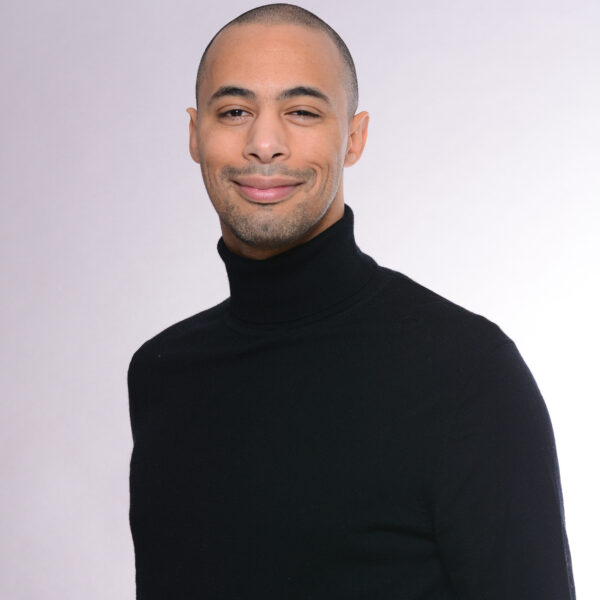
MYSTORY with …
Bakry
42 Years, Berlin
“any discrimination experienced in a
particular cultural context enabled my
mind to arm itself against oppressions and
microaggressions of other social groups. …”
Published: June 2022
Intertwined Identities.
I am mixed race, cis male, middle aged, homosexual, with no previously identified disability, French, not a native German speaker (who speaks accent and error free German), coming from the proletariate, who has experienced educational advancement. I am all this and so much more.
Coming out is almost foreign to me, I´d say. When I was about 18, I worked for the Hotel Central, one of the first gay establishments starting from the 80s in Paris. After my first shift, I told my mother my first impressions about this LGBT*IQ place. She asked me if all my colleagues were gay. My answer was yes. She then asked me if I was gay myself. My answer was yes. That was it, my meaningless powerful statement about my sexual identity. All in all, it was a paradoxically insignificant experience for a gay PoC from a proletarian immigrant neighborhood, in the late 90s. I never felt the need or compulsion to explain myself. I was “openly gay” the way a cis-heterosexual man might be “openly straight”: uneventful. A few months later, when I moved in with my first boyfriend, my youngest brother came to visit regularly to play videogames with my boyfriend. Life, as usual.
In contrast, I experienced intersectional queer awakenings several times, which I came to understand in retrospect. After reading “The Return to Rheims” by Didier Eribon, I realized that my ego-gayness played a role in my aspiration to become something other than what the determinism of social reproduction drove me to be. In fact, I felt drawn to enter other spheres to encounter my own kind.
I felt the need to understand the contradictory multiplicity of my interwoven identities and to reconcile them. This was pointless.
At that time, neither in the gay scene nor in other subcultural spaces, I could feel a sense of complete belonging. No matter what social groups I was in, mechanisms of oppression emerged without exception. There was no one like me, but the eternal ballet of attributions and self-determinations. Again and again I observed how social interactions could be redefined in binary social oppositions. However, any discrimination experienced in a particular cultural context enabled my mind to arm itself against oppressions and microaggressions of other social groups.
Let us take the example of language, which, beyond its communicative function, is also a structuring element of culture. Indeed, it can be an instrument of stigmatization or an assignation for social prestige. Thus, the verve of the youthfully caustic gutter language of the multicultural urban world of my neighborhood, Barbès, helped me fend off both the (un)consciously racist slogans and the ironically exclusionary repartee of the dominant white men of the queer community. Thus, the shameless black humor of the queer scene helped me to free myself from the shame of my proletarian speech. Thus, the shameless boldness of the language of my class helped me to speak foreign languages shamelessly with accent and mistakes. All of these facets of my identity help me navigate a society whose norms and deviations are constantly negotiated. One might perceive this adaptability as pretense, but I would call it the social performativity of an individual’s multiplicity.
Meanwhile, my PoC queer identity was an asset in my D&I consulting work with the Ozecla agency in France to deconstruct mechanisms of oppression and people’s distorting filters.
It often happened that in white feminist milieus it was necessary to elucidate the vicissitudes of social asymmetric dynamics in relation to the distribution of power relations. To the extent that white women needed to be made aware that they might be exercising forms of oppression vis-à-vis a queer black man because of their dominant white heteronormative-cisgender identities.
It takes a great deal of resilience on my part to endure the defenses of an oppressed group as I educate them about their own mechanisms of oppression. I have encountered this phenomenon again and again in recent years in Germany as well – both in my D&I work in the queer community and during my engagement in my main job. It is a burdensome challenge to expose and denounce the social mechanisms of racism, queer hostility and sexism. But as a black queer man with intersectional views, I can’t help it.
DEAR Bakry, THANK YOU VERY MUCH FOR YOURSTORY!
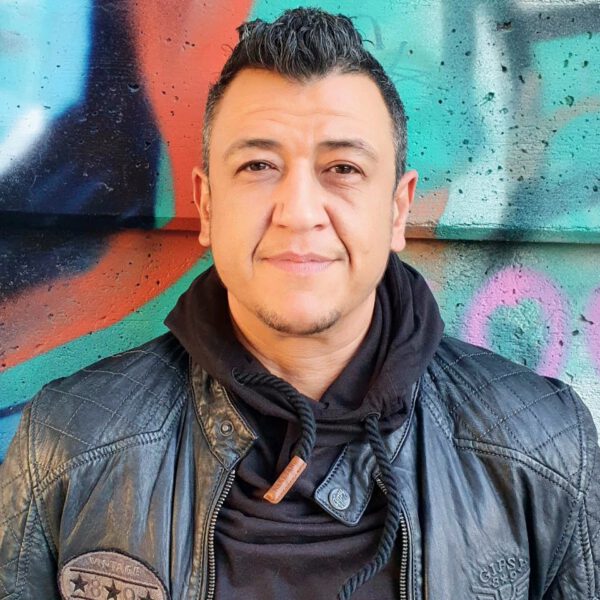
MYSTORY With …
Leon
43 Years, HaNnover
“Sometimes it takes time and
role models to bring change. …”
Published: May 2022
One Life, Two Outings plus Migration Story – One box is enough!
Since my birth and in the first moments of the perceptions of myself, I knew that I did not fit into this existing body costume and into the “classical” distribution of roles. The assigned colors (red and pink) and the ideas of society were not compatible with my self. I was nevertheless – without being listened to or recognized in my existence – pushed into the female system. Be it through education or the societal guidelines in kindergarten, school, training and the work world. At that time, transidentity and intersexuality were not yet as visible as they are today.
There was no knowledge transfer, contact and counseling centers – simply nothing, although trans* and inter* people have existed since there are living beings on planet earth.
So I resisted this female costume since childhood and fled for many years into the lesbian identity, in which I was allowed to be more or less me, wear male clothes and behave as I wanted, simply not female for me. I accepted this “hiding place” and outed myself as a lesbian to all the people around me as a matter of course. The reactions, many questions, prejudices and discriminations were very familiar to me due to my Scottish-Turkish migration history from an early age – I was already “trained” in having to endure this discrimination in all ways. What else could I do?
My mother was not surprised and said that I had always been like a boy anyway. With the difference that I always was and am one. She didn’t know any better, how could she? The rest of the German-Scottish-Turkish relatives reacted differently. From “we always knew that” to “this person is not coming into my house anymore” everything was there.
It was a tremendous effort for me to be hidden inside myself for all those years. Every time I had the courage to really “come out”, something happened that set me back: fear of the reactions of my family, friends, colleagues, fear of losing my dream job, fear of the separation from my former wife. And at some point you learn to play this role, try to convince yourself that it will be worth living somehow.
But the I-am-allowed, to be free and the desire to let this body costume disappear, became stronger and stronger over the years. To look at myself in front of the mirror and – then as a child as well as in adulthood – to feel the desire to simply throw off this ballast and to finally be able to be happy and free … this dream, this feeling was energy-draining and unattainable, because I could not get out of myself. The fear was too great for many years.
Whenever articles about trans* people appeared or I saw them at the CSD, this feeling and the desire for freedom came up. Inside I was torn, but I tried to function, to get up again and again and tell myself “you can do it”.
When I came out to my wife in 2018 and talked about the great desire to break free from the chains of suffering, because I can’t and don’t want to be like that anymore and feel the same way as Balian B., I triggered great shock and had to endure the classic reactions: “You don’t want to be a man. I love you the way you are. I love your feminine bust. Sure you are very masculine, but I also like the feminine side. I don’t want a man with a beard and lots of hair. You are good the way you are, why do you think you want to be a man now? If you are actually going to do this, then I will divorce you …”
That was only a fraction of the sentences that rushed through my insides and caused hellish pain every time. I loved this person more than anything, and I tried to understand her side as well, but did she want to understand me? After the conversation with my wife, I first decided for us and our marriage and tried to bury the longing again. Only I noticed that I didn’t succeed so well anymore, because the longing and the suffering pressure were very hard to bear. Two and a half more long years and recurring conversations with my wife later: “If you do this, I’ll divorce you.”
Then I met great people who were just like me, with identical life stories. These two people gave me the strength to take my next step: in 2020 came Corona, and because of all the arguments with my wife, I temporarily moved to the country with my dog at the time, a French bulldog.
There I had a lot of time to think – the first time that I took a lot of time for myself and was not always available for other people. Finally it was my turn!
Simply EVERYTHING from the past years came shooting up like a tornado wave. In the 4 weeks my life changed by the second. My wife realized her threat and I stood alone. And due to a local change of profession, I was also facing a new beginning there.
I took all my courage after 41 years and outed myself a second time. If not now, when then? First with my inner circle of friends, then with my colleagues and finally with my superiors. The response was mostly very positive!
Since 2 years ago I finally feel free and I am glad to have taken this important step, even if it took many years for many different reasons. Sometimes it takes time and role models to bring change. Today I am allowed to be a role model and would like to encourage many people. Do not be afraid, because you are not alone! It is important to make gender diversity and the different facets visible and to bring the knowledge about it into all areas. Looking back, I sometimes wonder where I had developed the strength to get up again and again and keep going. It was the many great people around me who gave me strength and courage. Of course also my desire and joy in life and the fact to be able to give courage and strength to other people.
These experiences have shaped me into the person I am today, with all my facets:
My name is Leon Dietrich, my birthplace is the earth, my nationality is human, my politics is freedom, my religion is love and I love people and our democracy!
Dear Leon, Thank you very much for YourStory!
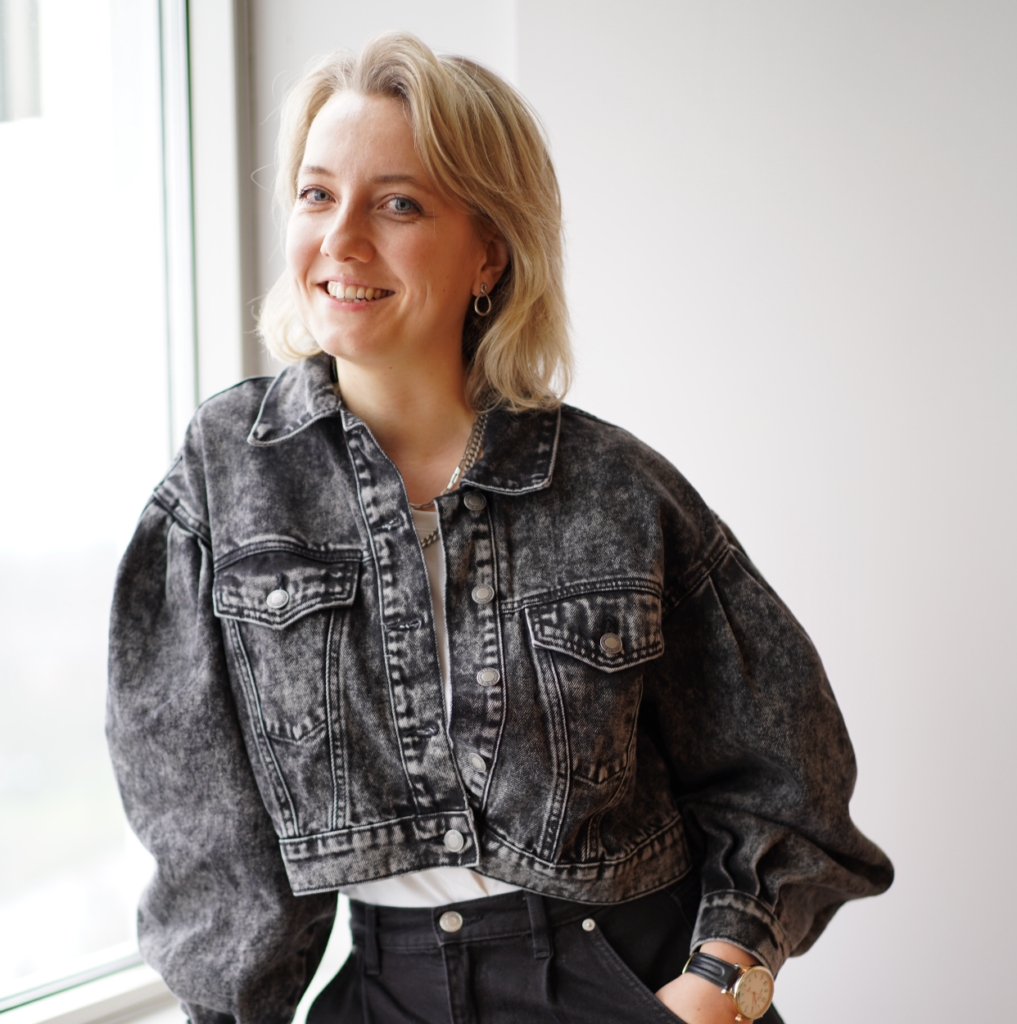
MYSTORY With …
Oxana
34 Years, Hamburg
“Once you were in, this parallel world opened
up where everyone knew each other and you
were allowed to be whoever you wanted. …”
Published: May 2022
Parallel Worlds
I come from Russia – the country that today is associated with war, violence, propaganda and homophobia. And it’s hard to believe that in my youth, in the 2000s, I experienced probably the most liberal and free time of this country. That was the time when the pop duo “t.A.T.u.” became famous in Europe and in the USA. At that time in Russia no one was bothered by two girls kissing on stage. Many girls then walked hand in hand in the streets in short skirts, like in the video All The Things She Said. There were also other Russian artists who made homosexual references in their songs and videos. I grew up with that.
When I was a student, I knew that homosexuality existed, but I didn’t identify with it. I always had close relationships with my girlfriends, even held hands and slept in the same bed. It was all harmless and felt normal. I also knew that in a parallel class there were some girls who were supposedly into women. It was only whispered about (later I saw them at lesbian parties). When I met a girl at a summer camp and felt jealous every time she talked about boys, I couldn’t place my feelings.
I didn’t realize the fact that I was into women until I was 17, after a young woman approached me in a heterosexual club and wanted to get to know me. I dated her for about a year after that and we still keep in touch (today she lives in San Francisco with her wife and child). She introduced me to the lesbian community.
The LGBT*IQ community in my hometown (population about 2 million) was quite big at that time, there was a club for lesbians and one for gays with weekly parties. In Moscow and Saint Petersburg, of course, there was more: more clubs, more parties, more people like us, but we were happy with what we had. Of course, none of this was public and you had to know your way around, but once you were in, this parallel world opened up where everyone knew each other and you were allowed to be whoever you wanted.
That’s where I found my soul mates, my best friends. I loved this parallel world, even though it wasn’t perfect either.
I was a student, had little money, lived with my parents, who raised me liberally but didn’t know about my sexual orientation at the time. While I felt so comfortable in the community, the outside world became less and less tolerant – but I didn’t realize that until later.
At the end of 2008, I came to Germany to study, without knowing how long I would stay … 14 years later, I’m still here, happily married to my wife and with a great job, leading the life I always wanted. I feel free and safe in Germany. I am grateful for all the experiences I have had and all the people I have met. I am grateful for the time I experienced in Russia and I know that nowadays it is unimaginable and sometimes even dangerous to walk hand in hand there. Nevertheless, I wish all LGBT*IQ people to find their way early and have only the positive encounters. To those who don’t dare yet, I can only say: “Don’t be afraid, you are normal and not alone!”
Dear Oxana, Thank you very much for YourStory!
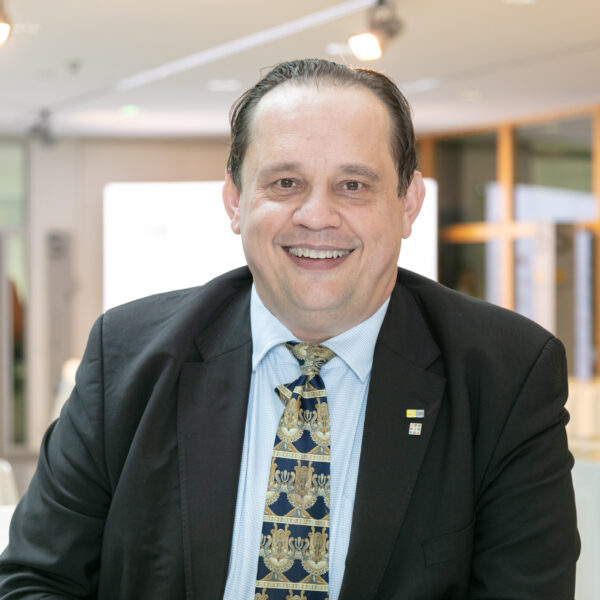
MYSTORY With …
Jean-Luc
55 Years, Frankfurt
“My parents and grandparents taught me that
belonging to a minority has a positive value
and is something to be proud of. …”
Published: May 2022
The Power of rooTs.
For me and my involvement in the LGBT*IQ community, my roots and my origin are very important . Since birth, I belong to a minority in France, as a Protestant in a very Catholic country. We Protestants represent about 2 million citizens, less than 3% of the French population. We are a strong community, very involved in society, politics, associations and economy.
My parents and grandparents taught me that belonging to a minority has a positive value and is something to be proud of. I also learned as a child that solidarity within and outside one’s community is essential – and that one should help others who are suffering or rejected, no matter who they are.
Protestants have also been discriminated against in the past, especially in the 17th/18th centuries, just because of their faith. My family experienced this discrimination just like other Protestant families. For example, we were not allowed to bury our dead in the cemetery in the past, so every Protestant family had a small cemetery on their property. From such experiences, we know what discrimination feels like – and that explains why we Protestants helped many Jews during World War II, for example. So I learned that I have to stand up against any kind of discrimination in the whole society.
For generations, members of my family have been involved in the church and in local politics, for example. In the Lutheran Church, church affairs are decided and administered by a synod, a group of people made up of 50% clergy and 50% church members. My father was a member of our church’s synod for over 20 years. My parents and grandparents were also very active in the unions. And I am the first in my family to help start a foundation, which they are very proud of.
I saw from a young age how important and rewarding it is to be socially involved, to have time for others, and that it is possible to make positive changes.
… About 23/24 years ago, I had my Coming Out and met the first big love of my life. This gave me a lot of strength and self-esteem, which brought about many changes in my life. I left the university world to start my career at Deutsche Bank – and also my social commitment.
Then, in 2000, I was lucky enough to be invited to the founding event of dbPride, Deutsche Bank’s LGBT*IQ network – that was the beginning of everything!!!
From the beginning, more than 20 years ago, until today, my upbringing and roots have been the key and main driving force for my commitment to the LGBT*IQ community – and beyond … for a more respectful and tolerant society.
Dear JEan-Luc, Thank you very much for YourStory!
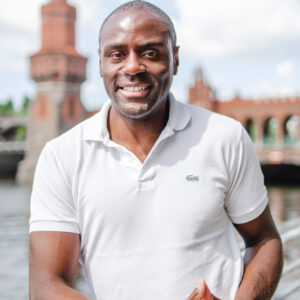
MYSTORY With …
Louis
42 Years, Berlin
“Despite all difficulties, I found the
courage in my 20s to acknowledge
all facets of my identity …”
Published: May 2022
Being QPOC.
As a QPOC in this mostly heteronormative-cisgender, white environment, I learned very quickly to identify (un)conscious oppressive phenomena in order to navigate the world (relatively) safely. It was simply a matter of survival – at least it seemed that way to me at the time, often rightly so. Despite all these difficulties, I found the courage in my 20s to acknowledge all facets of my identity – thanks to the support of QPOC friends I met in the activist scene and whose stories motivated me.
Shortly after coming out, I had the opportunity to move to Cologne to continue my studies. Like all my peers in one of the queerest strongholds in the country, I went to one of the numerous discos one night. There, a (white) man came up to me smiling, but spoke to me in English. Although I kept talking German, he always answered in English, which irritated me a bit because his German accent was easy to recognize. The gentleman was polite, nice, offered me a drink. Although the conversation was quite pleasant, it was clear to me that despite his interest, nothing more would come of it. Quite politely, I then showed him that I wanted nothing with him except for a friendly chat. Suddenly, out of nowhere came the statement that completely threw me off:
“Why do you have to play hard to get, when a white man is interested in you?”
My jaw dropped … I was flabbergasted. The man shook his head and walked away. He probably thought my stunned reaction was because I was offended that he had suddenly lost all interest in me – and not because of the racist connotation of his statement …
At first, I thought this was an isolated incident. Our shared experiences as queer people had made us similarly minded people who could put ourselves in the shoes of any minority better than anyone else, I thought naively. How could people who, like me, had experienced exclusion and discrimination have the audacity to shamelessly express such things in public? It was simply inconceivable to me at the time, let alone understandable … until other QPOC friends told me similar, sometimes more horrific stories over time. That’s when I had to come to the realization that the queer community (especially the male-dominated mainstream), in addition to the long identified issues of sexism and transphobia, is unfortunately plagued by racism, despite all the denial and whining. And (un)consciously perpetuates the racist (but also sexist) mechanisms of oppression in general society. This imbalance in power relations is also reflected in the workplace in my interactions with other (white) queer colleagues.
Therefore, the next big challenge for the LGBT*IQ community is to continue these discussions and the work derived from them in a more intersectional way. I do this every day, both in my role as D&I manager and in my personal sphere, because there is indeed still an insane amount of work to be done in this area …
Dear Louis, Thank you very much for YourStory!
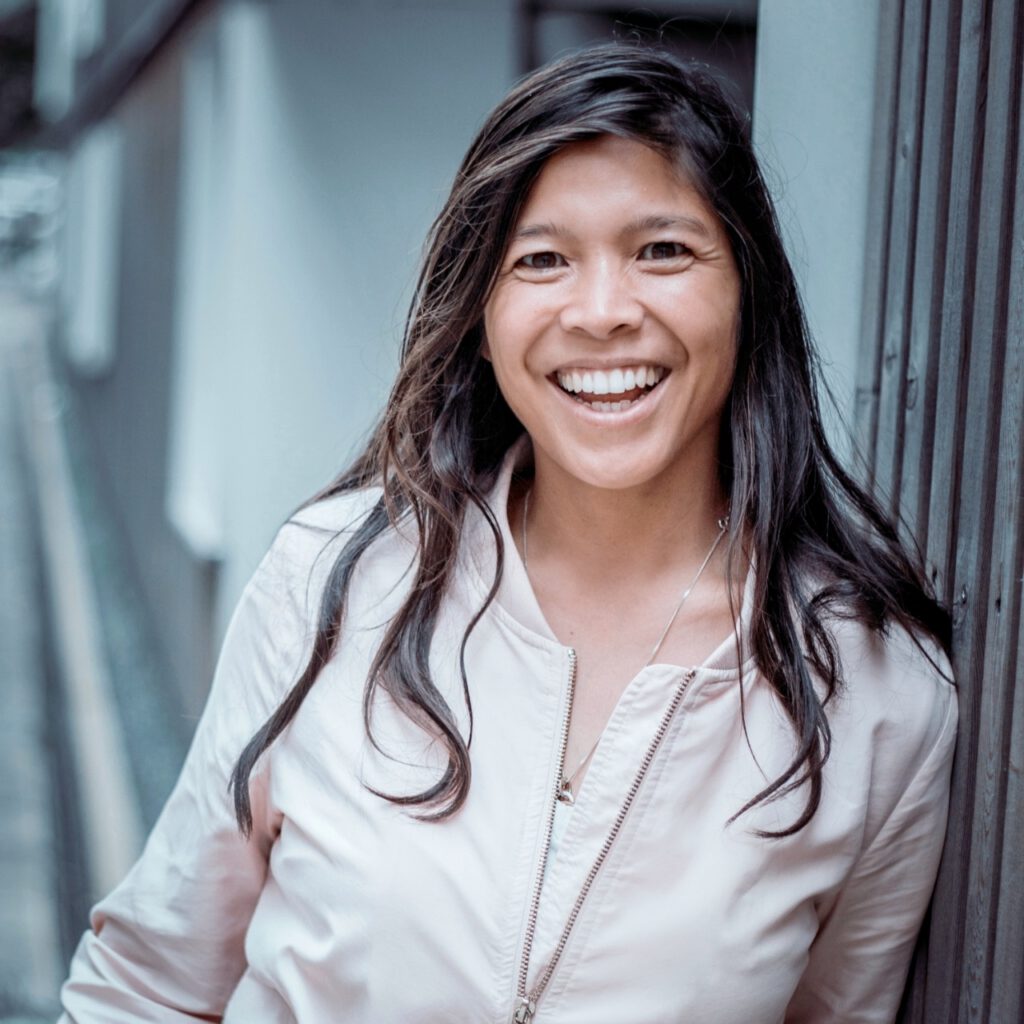
MYSTORY With …
Jannette
38 Years, Hamburg
“It is important to speak up and be a role model to young
people. I would love the next generation to be even more
progressive when it comes to diversity and inclusion. …”
Published: May 2022
Role Models
I grew up in a very Catholic Filipino family. Being a lesbian was not an option for us – on the contrary, my parents considered it a “punishment from God”.
On my way to coming out, there were a few role models in my life, starting with this one girl in high school during my exchange year in New Jersey. She played on my basketball team, was openly lesbian … and didn’t make a big deal about it. I always admired her strength and courage. She was an inspiration to me.
My older brother is gay, and I came out a few years after him. After my brother came out, my parents moved from Germany to California. I was 17 at the time, preparing for my final exams, had my circle of friends here, and decided to stay in Bonn.
Six years later, I told my father that I was in a very happy relationship with a woman. His response was: “This is God’s way of punishing me.” I was very disappointed with his reaction.
It took about 10 years for my parents to accept that my brother and I were homosexual.
When I got married, my parents didn’t come. Only when we had our two daughters my parents resumed contact. A few years later, my then wife Mareike and I decided to separate but continue to be good parents. Living with my new wife and explaining this to my parents felt to them like my second coming out, which destroyed their ideal world. Fortunately, this time it didn’t take 10 years for them to accept my decision.
Today, my parents get along very well with my brother’s and my partners. My wife Mina, the children and I live in Hamburg and have close contact with my ex-wife. I think it’s great to see what kind of development my traditional parents have made in the last few years.
Many people have helped me on my way to coming out. For example, my ex-wife Mareike, who taught me to be self-confident. She encouraged me to speak my mind and fight for things I believe in. My wife Mina, who encourages me to do all the things I truly believe in and loves me for who I am. My children who inspire me every day. It is important to speak your mind and be a role model for young people. I want the next generation to be even more progressive when it comes to diversity and inclusion.
My company allows me to be who I am. That influences my work. I couldn’t work for a company that forces me to hide who I am. Authenticity is the key.
Dear Jannette, Thank you very much for YourStory!
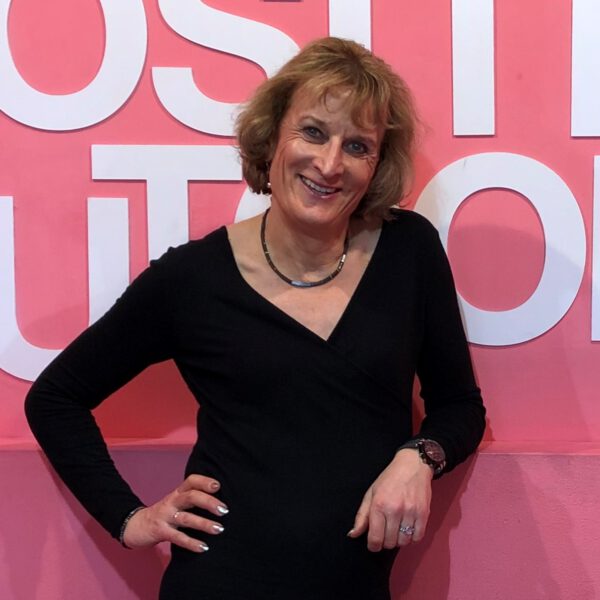
MYSTORY With …
Manuela
62 Years, Bonn
“When I saw a documentary about a trans* woman on television
for the first time in the 90s, I was gripped by defensiveness,
fascination and insatiable longing in equal measure. …”
Published: May 2022
MY LATE COMING OUT AS A TRANS* WOMAN…
At the age of 5, I noticed for the first time that “something was wrong” with me, when I was filled with a bright feeling of joy at being mistaken for a girl – at the same time I was confused and ashamed about it. Never would I have wanted to talk about it to anyone, just as I would never have wanted to talk about how beautiful I thought it was to secretly wear my mother’s wedding dress in the attic. Other hidden feminine preferences developed, at the same time combined with a strong aversion to male-typical behavior. I steadfastly refused to wear suits or ties or to undress in front of other boys in the locker room during sports. On the other hand, I wanted to be accepted and not ridiculed.
So I deliberately took up masculine hobbies and did everything else to hide my developing feminine inner self from others.
Girls always fascinated me – I admired them, wanted to be like them and fell in love with them. I found the love of my life at 19, to whom I am still married and have 3 wonderful children. Unfortunately, my attempt to tell about my inner feelings was brusquely dismissed by my then girlfriend and so I remained alone with my hidden feelings and the female parallel world that was building up inside me for decades.
When I saw a documentary about a trans* woman on television for the first time in the 90s, I was gripped by defensiveness, fascination and insatiable longing in equal measure. It was clear to me that a mirror was being held up to me. On the other hand, I felt inner resistance, because I saw the consequences and dangers if I gave in to my desires. So I imposed a ban on gathering information on myself, which I kept up for more than 20 years, until the topic of transgender became so present in the media that I gave in and began an Internet search, which confirmed my suspected self-diagnosis of “transident” after a very short time.
After that my thoughts circled only around my transsexuality and I understood that there was no way around my coming out. Starting with my wife and my children, I opened up to friends and a few good colleagues and was very surprised about the largely positive reactions and support offered, as the stories on the Internet were mostly characterized by personal disasters. This also applied to the professional life, where I was not aware of a single comparable case at my employer RWE, which caused me particular anxiety. So I firmly expected to lose my professional and human reputation as well as to be ostracized and ridiculed in this male-dominated, at that time (as I thought at least) quite conservative company.
But things turned out quite differently. First of all, I ran into an open door in the Diversity department when I asked them for support for my plans to make the transition to becoming a woman at work. Finally, someone at RWE was openly admitting to being transgender by name and face, I was told, and together we worked out a plan for coming out at work, for which I gained support all the way up to the Executive Board. After personally informing a few colleagues and superiors in advance, with whom I had a special relationship, our board of directors sent an e-mail to its managers during my vacation, who in turn distributed it to their employees.
To my delight, I received warm and supportive messages while still on vacation, so that my worries about the reactions of my colleagues melted away like snow in the sun! Numerous other outing conversations followed with people who were personally important to me and with whom I placed particular value on them understanding my story and accompanying me on my journey! However, it should also be mentioned that I lost some friends who did not want to follow my transformation, but in their place I was able to meet wonderful new people.
It was also hard for my closest family, but we stuck together and walked the sometimes rocky road together.
At RWE, we got in touch with another trans* woman, a gay colleague joined us and we founded the LGBTIQ & Friends Network at RWE, which now has 225 members. In addition to warm friendship, we are now united by the goal of making it easier for other members of the LGBTIQ community to come out at work. To this end, we provide assistance and advice and are in close contact with other companies and LGBT*IQ networks in Germany.
Dear Manuela, Thank you very much for YourStory!
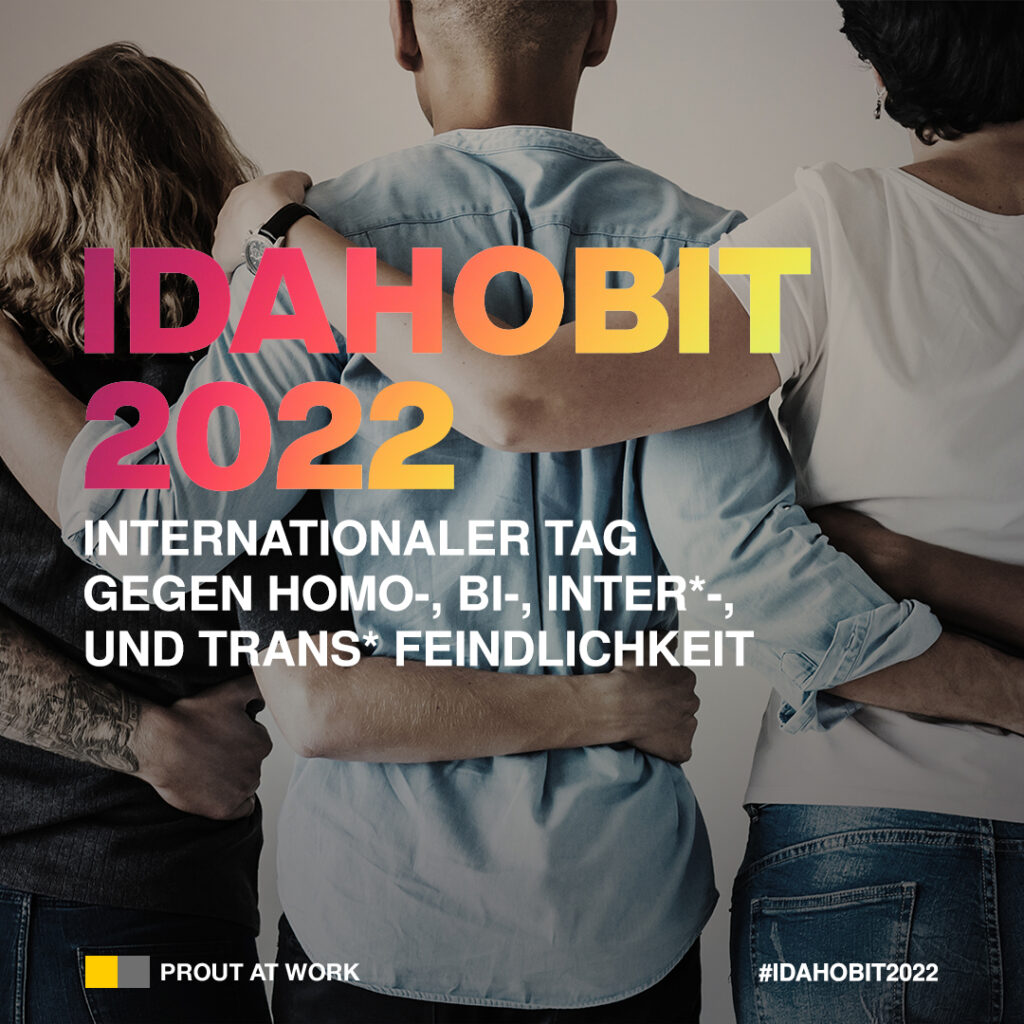
This Year’s IDAHOBIT and #MyStory
The International Day against Homophobia, Bi-, Inter- and Transphobia (IDAHOBIT) has been celebrated annually on May 17 since 2005 to highlight discrimination against the LGBT*IQ community, to raise awareness of existing inequality structures and to take a united stand for diversity and tolerance. May 17 marks the day in 1990 when the WHO removed homosexuality from the diagnostic code for diseases.
Today and every day of the year, we want to celebrate the colorful diversity of the LGBT*IQ community and have therefore created the format “MyStory”. The format gives a stage to all the individual stories that queer people experience every day, because we believe that everyone has something inspiring to tell. We start today with four moving stories.
IDAHOBIT 2022
Facts
Studies show that workplace discrimination experiences are still part of everyday life for many LGBT*IQ people. The study “Inter in the Office?!” The work situation of inter* people in Germany under a differential perspective to (endo) LGBTQ+ people.”, published in 2020 by Prof. Dr. Dominic Frohn states that 37.7% of (endo) trans and/or non-binary people surveyed, approx. 30% of inter* respondents and approx. 20& of (endo* cis) LGB+ people directly experience workplace discrimination , in the form of e.g. job rejection, transfer or dismissal.
It’s not surprising, then, that according to a Boston Consulting Group survey (2018/19), 22% of respondents see coming out at work as a potential career risk. 42% would lie to their manager about their sexual orientation and/or gender identity. More background information and studies on LGBT*IQ (in the workplace).
Support
Discrimination against LGBTIQ people is evident at other levels of society besides the workplace. Deal with these issues and make yourself aware of existing inequality structures. Only by becoming aware of these structures and grievances can you actively contribute to their dismantling. The points mentioned here are only an excerpt and not a complete list of possibilities with which you can start your commitment for LGBTIQ equal opportunities and against homophobia, bi-, inter- and transphobia.
Blood Donation
Discrimination against LGBT*IQ people is evident at other levels of society besides the workplace. Deal with these issues and make yourself aware of existing inequality structures. Only by becoming aware of these structures one can actively contribute to their dismantling. The points mentioned here are only an excerpt and not a complete list of possibilities with which you can start your commitment for LGBT*IQ equal opportunities and against homophobia, bi-, inter*- and trans*phobia.
EU LGBT*IQ Freedom Zone
In 2020, some Polish municipalities and cities declared their region as so-called “LGBT-free zones”. The establishment of entire regions where, according to the signatories, no LGBT*IQ people live is a clear attack on lesbian, gay, bisexual, trans and inter* people. As a first step, the European Parliament has declared the EU as an “LGBTIQ Freedom Zone” to send a clear message against the homophobic rhetoric and sentiment against sexual minorities in Poland. Find out more about the current events in this regard.
Selbstbestimmungsgesetz
The currently valid “Transsexuellengesetz” (TSG) is deeply discriminatory and should be replaced by the self-determination law. “The parliamentary group Bündnis 90/Die Grünen has submitted a bill “for the repeal of the transsexual law and introduction of the self-determination law” (19/19755)”.
A basic Law for all
Demand the addition of Article 3 GG, because LGBT*IQ people are still not protected by Article 3 in the German Basic Law. Many people within the LGBT*IQ community experience discrimination, exclusion and hate violence. We feel that a protection by the Basic Law is indispensable and therefore PROUT AT WORK is one of the first signatories of the appeal “A Basic Law for All”. Sign also now the petition or contact your delegates.
Legal Equality for queer Families
Stand up for the rights of rainbow families. Compared to children of heterosexual couples, the second mother must first adopt her child to provide legal protection – even if the parents are married. For example, support the nodoption campaign, which opposes stepchild adoption among rainbow families and advocates for recognition of parenthood.
MyStory
We collect stories that move, entertain, inspire. Read our first four stories today and look forward to many more!
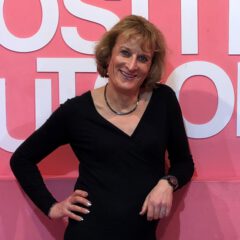
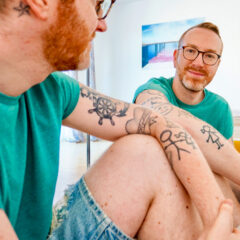
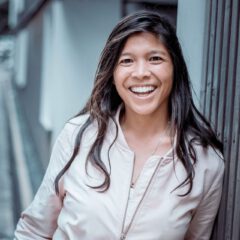
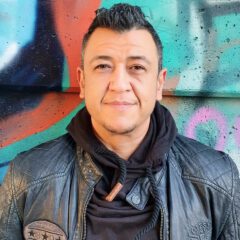
Counseling
LesMigras
LesMigraS is the anti-discrimination and anti-violence section of lesbian counseling Berlin e.V.”
Gladt e.v.
“GLADT is a self-organization of black and of color lesbians, gays, bisexuals, trans, inter and queer people in Berlin, which stands up against racism, sexism, trans* and homophobia, ableism and other forms of discrimination and offers a diverse range of counseling services.”
Antidiskriminierungsstelle des Bundes
“The counseling team with lawyers can inform you about your rights in a case of discrimination or sexual harassment, show you possibilities if and how you can enforce your rights, strive for an amicable conflict resolution and try to name experts close to your home.”
Bundesverband trans*
“The Bundesverband Trans* (BVT) sees itself as an association of individuals, groups, clubs, associations and initiatives at regional, state and national level, whose common endeavor is the commitment to gender diversity and self-determination and the commitment to human rights in terms of respect, recognition, equality, social participation and health of trans or persons not located in the binary gender system.”
Deutsche Gesellschaft für Transidentität und Intersexualität e.V.
“The dgti has set itself the goal of promoting the acceptance of transidents within society and counteracting their stigmatization. It should advise and support affected and interested persons, if this is desired. An essential aspect of the work should be the (re-)integration of affected persons into the work process, in order to counteract the danger of social decline, which is still associated with social change today. It advocates more openness toward one’s own identity and takes into account the diversity of human existence.”
